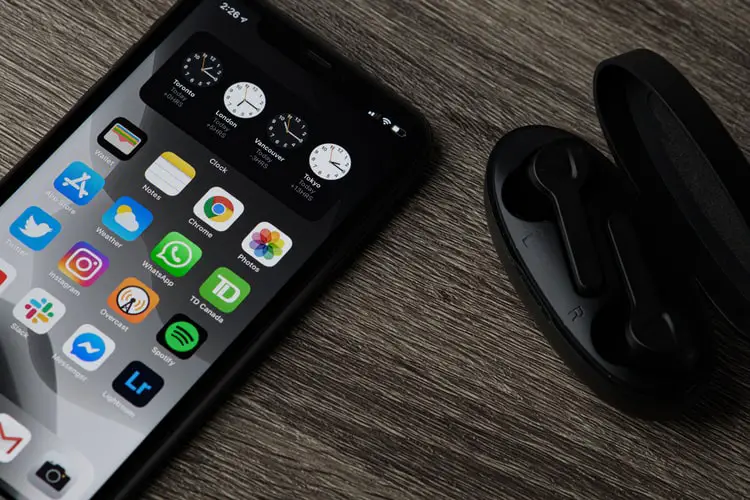
So, have you finally decided to pursue your life-long dream of becoming an entrepreneur? Or are you in the process of launching your business and are looking for ways to make it thrive? In either case, you must have realized that starting your own venture isn’t a cakewalk. Creating a mobile app for your business will lead to more sales.
The Reality of Being a Small Business Owner
Things become particularly challenging when you have to run a small business or a bootstrapped startup. To begin with, you have fewer resources and manpower to carry out routine business operations. From recruitment and onboarding to product development and marketing – chances are you have to supervise everything.
On top of that, many aspiring entrepreneurs don’t have the budget to rent an office space. Consequently, you’ll have to work remotely, with your team members located across different time zones and continents. The need to work from home has become even more imperative because of the ongoing pandemic.
This, in turn, means you must take the right steps to ensure uninterrupted communication and seamless collaboration within your team. Also, you’re responsible for managing the cash flow, monitoring the sales process, and meeting new clients and investors.
That sounds like a lot of hard work, doesn’t it?
But the good news is that we’re living in the age of cutting-edge technological innovation. Whether you want to organize your finances or implement a marketing strategy, you’ll find a software solution to help you. You just have to choose the right app or tool for the task.
But the diverse assortment of business apps available on the internet will leave you spoilt for choice. That’s why in this blog, we’ll highlight various types of apps an entrepreneur must have to run and grow their business. Let’s get started.
1. Project Management Tools
Project management software is a must, irrespective of whether your team is working remotely. They’re instrumental in boosting employee productivity and ensuring hassle-free collaboration. Popular examples of project management tools include:
- Trello
- Asana
- OmniPlan
- Microsoft Project
These apps create a visual framework to let your employees prioritize urgent tasks and efficiently manage their time. Also, they’ll help you monitor your team’s work, even when you’re out attending investor meetings and networking events.
2. Weather Apps
Depending on the industry you’re operating in, your business operations might be weather dependent. For instance, if you’re running a food delivery service, your operations will be affected by adverse weather conditions.
Likewise, if you own an event management company, you need accurate weather information before planning an outdoor event. Even if your business isn’t weather dependent, you’ll still need weather data to perfectly time seasonal marketing campaigns.
That’s why weather apps are a must for modern business owners. From ensuring employee safety to maintaining business continuity – weather apps can help you optimize business operations during and after natural calamities, such as hurricanes and tornadoes.
Commonly used weather apps include:
- ClimaCell
- AccuWeather
- The Weather Channel
- Carrot Weather
3. Digital Marketing Tools
You can’t grow a business in 2021 without building and executing a well-rounded digital marketing strategy. However, if you’re running your digital marketing campaigns in-house, make sure you keep a robust toolkit at your disposal.
From social media management tools, such as Buffer and Hootsuite, to email marketing services, such as Mailchimp and ActiveCampaign – you’re going to need a wide variety of digital marketing software.
You could also consider using a graphic designing app like Canva to easily create eye-catching social media posts. Depending on your marketing campaigns, you’ll also need other apps, such as:
- Facebook Ads Manager
- Facebook Pages Manager
- Plai (for analytics)
- Mention (for social listening)
4. Cloud Storage Apps
If you’re running a business in today’s day and age, you must be already using cloud storage in some capacity. It’s no longer feasible to print important documents and carry them over to different departments.
Cloud storage apps eliminate the need to send back and forth emails among various team members who’re collaborating on a project. This, in turn, improves speed and efficiency and facilitates portability. Also, you end up saving plenty of paper, which is always good for the environment.
The most widely used cloud storage apps are:
- Google Drive
- Microsoft OneDrive
- Dropbox
5. Travel Organizers
As an entrepreneur, you’ll likely always be shuttling between meetings, conferences, and other events. Unless you can afford to keep a personal secretary, it’s a good idea to use a travel organizer app to keep a track of your schedule.
These apps easily sync to your calendar and send you reminders about upcoming travel plans. They can even retrieve the necessary information from various flight and hotel confirmation emails and save these details on your calendar.
Popular examples of travel organizer apps include:
- TripIt
- TripCase
- Sygic Travel Trip Planner
Running a business on your own can be daunting. But with the right apps and software, you can automate various tasks and take part of the workload off your shoulders.
What apps are you using to manage your business operations? Share your recommendations in the comments section below.










